The following is an excerpt from Reopening the World: How to Save Lives and Livelihoods, a new report where Brookings experts offer ideas to help policymakers protect lives and save livelihoods in the midst of the current COVID-19 pandemic.
 For a period in May, Russia held second place after the United States in number of COVID-19 cases. The virus spoiled Vladimir Putin’s plans for the spring, and he now has to deal with a pandemic and its grim impact on the Russian economy. After a six-week “nonworking period,” Putin encouraged steps to begin reopening the country on May 11, leaving many decisions—and the responsibility—to regional governors and mayors. It remains to be seen how proactive the central government will be in getting Russia back to “normal” and what impact the crisis will have on Putin’s popularity and the Russian approach to its conflict with Ukraine.
For a period in May, Russia held second place after the United States in number of COVID-19 cases. The virus spoiled Vladimir Putin’s plans for the spring, and he now has to deal with a pandemic and its grim impact on the Russian economy. After a six-week “nonworking period,” Putin encouraged steps to begin reopening the country on May 11, leaving many decisions—and the responsibility—to regional governors and mayors. It remains to be seen how proactive the central government will be in getting Russia back to “normal” and what impact the crisis will have on Putin’s popularity and the Russian approach to its conflict with Ukraine.
SPRING PLANS FRUSTRATED BY COVID-19
At the start of the year, the Russian president had big plans for the spring. First, constitutional amendments would give him an opportunity to retain authority after his presidential term concluded in 2024, either as an empowered prime minister or head of a new state council. In mid–March, Russia’s rubber-stamp legislative bodies rushed through a surprise additional amendment that would nullify term limits for Putin and allow him to remain president until 2036.
The Kremlin scheduled a nationwide referendum on April 22 to approve the amendments. The constitution provides no requirement for such a vote, but a public referendum would further legitimize the constitutional changes and presumably undercut any future challenge should Putin decide to run for reelection in 2024.
Topping off the spring would be the May 9 commemoration of the 75th anniversary of V-E Day. The celebration would remind Russians of the Soviet Union’s part in defeating Nazi Germany and reinforce themes of nationalism and Russia’s place as a great power on the world stage—themes that Putin has perpetuated since he returned to the presidency in 2012.
Alas for Putin, COVID-19 intruded. The number of COVID-19 cases became noticeable in mid-March. The Russian government reported going from 30,000 cases in mid-April to more than 300,000 on May 20, briefly holding second place until Brazil surpassed it. By June 1, the official count had surpassed 400,000.
Russia’s surprisingly low official fatality rate—0.9 percent compared to 4.6 percent in Germany and 6.0 percent in the United States—drew considerable attention and raised eyebrows, especially given questions about the health infrastructure outside of Moscow, St. Petersburg, and other large cities. One-third of doctors polled reported “adjusting” COVID-19 statistics, and the fatality rate among frontline health providers reportedly amounted to 16 times that in other countries, suggesting something was amiss. The Kremlin heatedly denied cooking the books.
On March 25, the Kremlin announced postponement of the April 22 referendum. Three weeks later, it postponed the V-E Day commemoration. Much of the country went into a “non-working period” for April and the first 10 days of May.
Putin’s approach showed some similarity to that of Donald Trump’s. Like his American counterpart, Putin responded slowly to the burgeoning health crisis, leaving matters largely to regional governors and mayors to manage. Self-isolating and working from his residence outside of Moscow, he began raising his public profile through online meetings in April. Passing some decisions down to regional and local authorities makes sense in a country that spans 11 time zones, but it also appears that Putin wants to leave the bulk of the responsibility to them should things go badly.
Putin called for the country to begin to reopen on May 11, though regional governors had the authority to decide how fast. Two weeks later, about half of the country’s regions had begun lifting COVID-19 restrictions. Moscow, an early epicenter, expected not to start a broad reopening until mid-June.
A GRIM ECONOMIC PROGNOSIS
The virus and resulting lockdown took the Russian economy, which had experienced at best lackluster growth (1.0 to 1.5 percent per year) since 2014 and plunged it into recession. Cabinet ministers in early May said that economic activity had fallen by 33 percent since the pandemic’s start. The International Monetary Fund projected that the economy would contract by 5.5 percent in 2020; other economists think the contraction could reach 10 percent.
COVID-19 had another negative economic impact for Russia. It crashed global demand for oil. Some 60 percent of Russian exports are hydrocarbons, and the oil and gas sector provides nearly 40 percent of government tax revenues. The Russians inadvertently contributed to the collapse of the oil price in early March when they did not agree to an OPEC proposal to reduce production. Saudi Arabia responded by boosting output, and on March 8, the price fell 30 percent.
In early April, Russia and OPEC agreed to cut production by about 10 million barrels per day, though global demand had dropped by 20–25 million barrels per day. Russia’s share of the cut came to some 2 million barrels per day. By late May, the price had recovered to about $35 per barrel, still considerably down from $68 per barrel at the beginning of the year.
The Kremlin thus far has devoted modest resources to stimulating the $1.7 trillion economy, resources that amounted to about 2.6 percent of gross domestic product by late May. That is especially modest compared to programs implemented by the United States, Germany, Britain, and other industrial countries, many of which have implemented financial stimulus programs equivalent to 10 percent or more of GDP.
The Russian government certainly could do more. While tax revenues in April fell by 31 percent, the government has built up $165 billion in a National Wealth Fund, and the Bank of Russia holds some $550 billion in reserves. However, Putin regards these funds as key assets and has seemed reluctant to dip into them. Governors and mayors have limited reserves in a system in which federal structures control the bulk of government monies. They can do relatively little on their own to spur economic activity or fund enterprises to help them sustain employment.
Small and medium business likely will take a particular hit. Comprising only about 20 percent of the Russian economy, the sector does not appear a priority for Putin, who favors larger state-owned and para-statal enterprises.
The Kremlin will closely track public attitudes as the crisis continues. The respected independent Levada Analytical Center released a poll on May 6 showing Putin’s approval rating at 59 percent, his lowest rating since first becoming president in 2000. This number causes nervousness in the Kremlin, as Putin’s approval ratings typically run in the 70s and sometimes exceed 80 percent. If the approval rating continues to fall, he may revisit the question of a greater stimulus.
Putin has rescheduled the V-E Day parade for June 24 and will use it to help draw public attention from COVID-19. Still, he has to be careful: public gatherings to honor the veterans and civilians who suffered through World War II could prove tricky for those being honored, as most are in their 90s and thus constitute a particularly vulnerable group. The referendum has been rescheduled for July 1, which may be a “non-working” day to boost turnout.
WAR WITH UKRAINE
Another question is what COVID-19 and its economic consequences might mean for Moscow’s conduct of the low-intensity conflict against Ukraine in Donbas. Most of the more painful U.S. and EU sanctions on Russia—whose economy, according to many economists, suffers a loss of 1.0 to 1.5 percent of GDP as a result—are linked to the conflict in Donbas as opposed to Russia’s illegal seizure of Crimea. They could be lifted if there was a settlement.
Some analysts (the author included) thought that the prospect of eased sanctions and the ability to focus on COVID-19 and its economic consequences might—not would, but might—lead the Kremlin to adjust its policy regarding a Donbas settlement. As of late May, however, there was no discernible change in Moscow’s approach, suggesting that the Russian government continues to consider the benefits of the conflict in terms of destabilizing and distracting Kyiv to outweigh the costs. At a December summit in Paris, Putin met with his Ukrainian, German, and French counterparts on the Donbas situation. The summit produced little. The leaders talked of a possible second meeting in April, but nothing has come of that.
A SECOND WAVE?
Putin cautioned his countrymen on May 21 that they should brace for a second wave of the virus in October–November. Should COVID-19 indeed return, he likely will continue the pattern he adopted in April and May, maintaining some degree of public management of the health and economic crises but positioning himself so that any public blame falls on those below. Trends in his public approval standing may prove the determining factor in whether the Kremlin opens up the purse strings to provide a more impactful jolt to the economy. As for a change in course on Donbas, do not rule it completely out, but keep expectations modest.
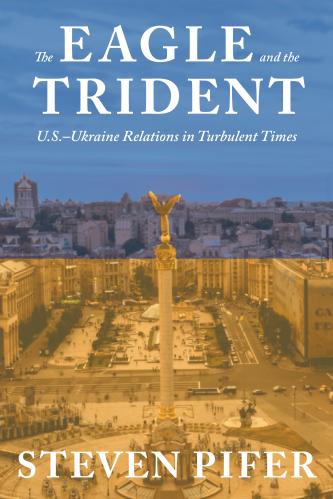
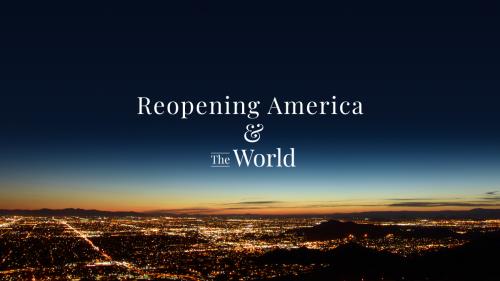
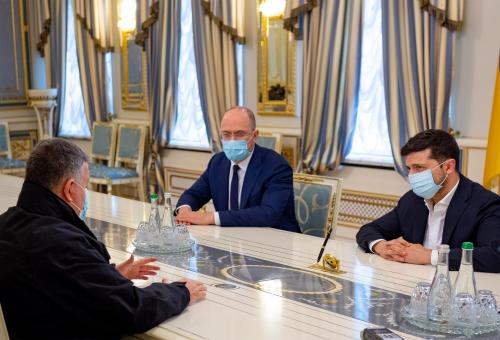
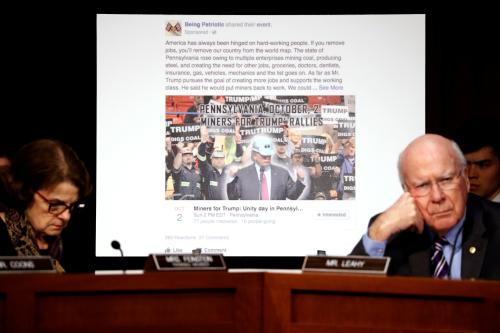

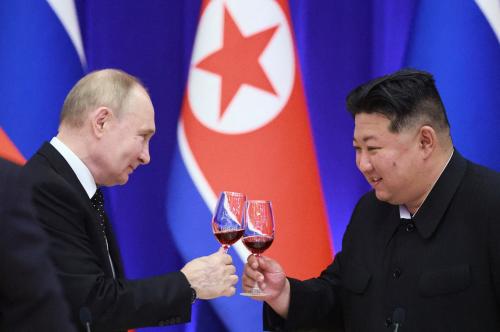
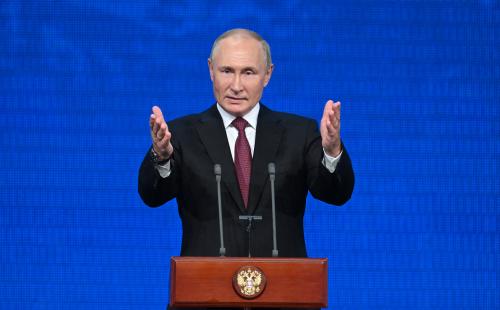
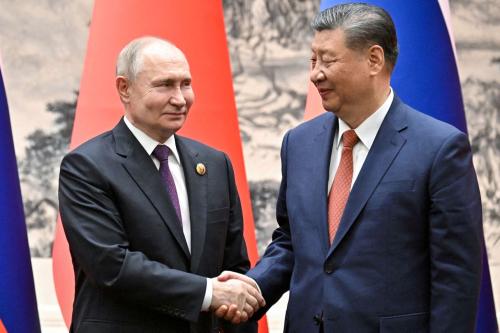
Commentary
Reopening the World: Is Russia avoiding blame and getting by on the cheap?
June 16, 2020